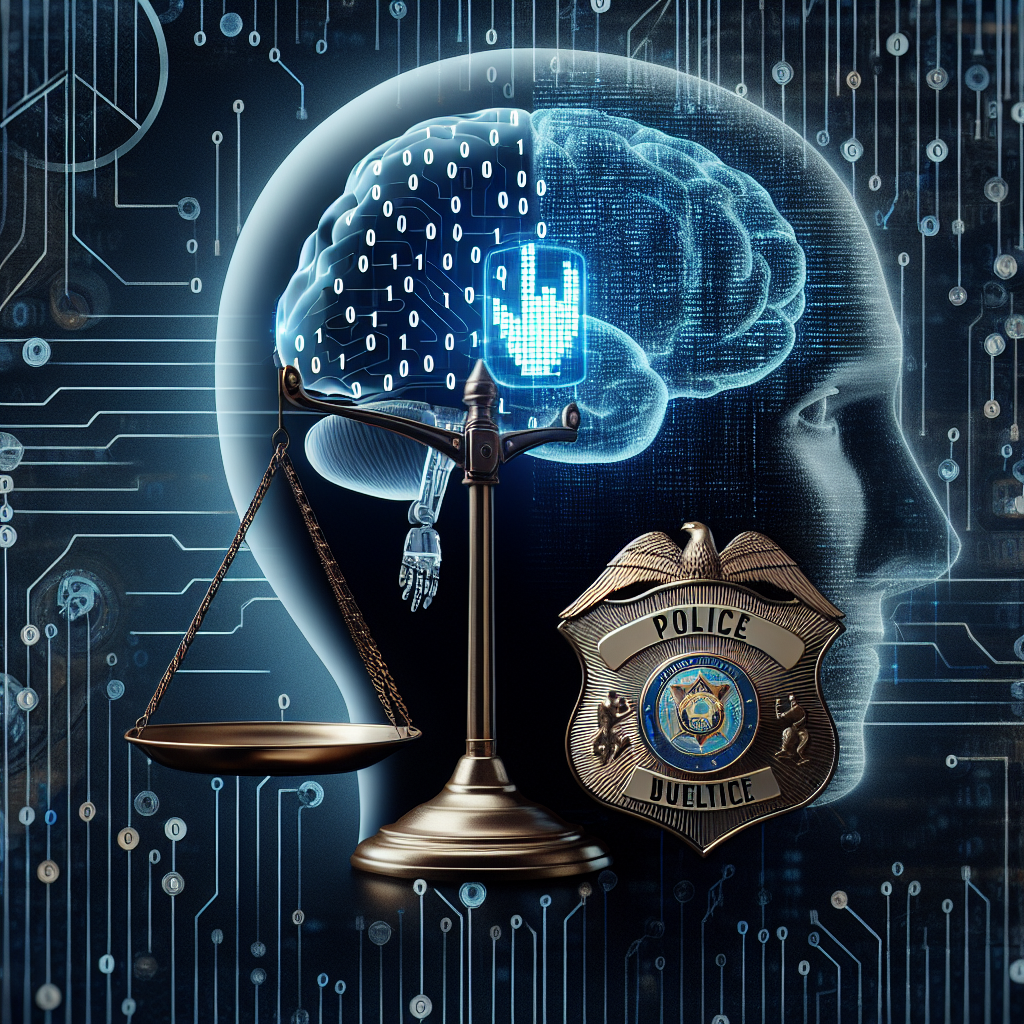The rise of artificial intelligence (AI) has transformed many industries, including law enforcement. One of the most controversial applications of AI in law enforcement is predictive policing. Predictive policing uses AI algorithms to analyze data and predict where crimes are likely to occur. While this technology has the potential to help law enforcement agencies prevent crimes and allocate resources more effectively, it also raises ethical concerns about bias, privacy, and civil liberties.
Ethical Concerns in Predictive Policing
One of the biggest ethical concerns in predictive policing is the potential for bias in the AI algorithms used to make predictions. These algorithms rely on historical crime data to make predictions about future crime hotspots. However, this data may be biased due to factors such as over-policing in certain neighborhoods, racial profiling, and systemic inequalities in the criminal justice system. As a result, the predictions made by these algorithms may perpetuate and even exacerbate existing biases in law enforcement practices.
Another ethical concern in predictive policing is the impact on privacy and civil liberties. Predictive policing relies on the collection and analysis of vast amounts of data, including information about individuals’ behavior, movements, and social connections. This raises concerns about the potential for mass surveillance, profiling, and infringement on individuals’ rights to privacy and due process.
Additionally, there is a concern about the lack of transparency and accountability in the use of AI in law enforcement. The algorithms used in predictive policing are often proprietary and not subject to public scrutiny or oversight. This lack of transparency makes it difficult to assess the accuracy and fairness of the predictions made by these algorithms, and raises concerns about the potential for abuse and misuse of this technology.
Ethical Guidelines for AI in Predictive Policing
In response to these ethical concerns, there have been calls for the development of ethical guidelines and standards for the use of AI in predictive policing. These guidelines aim to ensure that AI technologies are used in a fair, transparent, and accountable manner, and that they respect individuals’ rights and freedoms. Some of the key principles that have been proposed for ethical AI in predictive policing include:
– Fairness: AI algorithms should be designed and tested to ensure that they do not perpetuate or amplify biases based on race, gender, or other protected characteristics. This may involve using diverse and representative data sets, and implementing measures to mitigate bias in the algorithms.
– Transparency: Law enforcement agencies should be transparent about the use of AI in predictive policing, including the data sources, algorithms, and decision-making processes involved. This transparency can help to build trust with the public and hold agencies accountable for their use of this technology.
– Accountability: There should be mechanisms in place to hold law enforcement agencies accountable for the use of AI in predictive policing, including oversight by independent bodies, audits of the algorithms, and opportunities for individuals to challenge and appeal decisions made by AI systems.
– Privacy: The collection and use of data in predictive policing should be done in accordance with privacy laws and principles, and individuals’ rights to privacy and data protection should be respected. This may involve implementing safeguards such as data minimization, anonymization, and encryption.
– Proportionality: The use of AI in predictive policing should be proportionate to the risks and benefits involved, and should not infringe on individuals’ rights and freedoms more than necessary. This may involve conducting impact assessments and considering alternative approaches to achieving law enforcement objectives.
Frequently Asked Questions
Q: Can predictive policing help to reduce crime rates?
A: Predictive policing has the potential to help law enforcement agencies prevent crimes and allocate resources more effectively. However, the effectiveness of predictive policing in reducing crime rates is still a matter of debate, and there are concerns about the potential for bias and other ethical issues in the use of this technology.
Q: How can bias be mitigated in AI algorithms used in predictive policing?
A: Bias in AI algorithms can be mitigated through a variety of measures, including using diverse and representative data sets, testing the algorithms for fairness and accuracy, and implementing measures to address bias in the decision-making process. It is important for law enforcement agencies to be aware of the potential for bias in AI algorithms and take steps to mitigate it.
Q: What are some examples of bias in predictive policing algorithms?
A: Examples of bias in predictive policing algorithms include over-policing in certain neighborhoods, racial profiling, and disparities in the criminal justice system. These biases can lead to inaccurate predictions, unfair treatment of individuals, and perpetuation of systemic inequalities in law enforcement practices.
Q: How can individuals protect their privacy in the face of predictive policing?
A: Individuals can protect their privacy in the face of predictive policing by being aware of the data that is collected about them, exercising their rights to data protection and privacy, and advocating for transparency and accountability in the use of AI in law enforcement. It is important for individuals to be informed about their rights and to take steps to protect their privacy in the digital age.
In conclusion, the use of AI in predictive policing raises important ethical concerns about bias, privacy, and accountability. While this technology has the potential to help law enforcement agencies prevent crimes and allocate resources more effectively, it also poses risks to individuals’ rights and freedoms. It is essential for law enforcement agencies to adopt ethical guidelines and standards for the use of AI in predictive policing, and for policymakers, researchers, and civil society to engage in dialogue and debate about the implications of this technology for society as a whole. By addressing these ethical concerns, we can ensure that AI is used in a responsible and ethical manner in law enforcement, and that it serves the interests of justice, fairness, and public safety.

